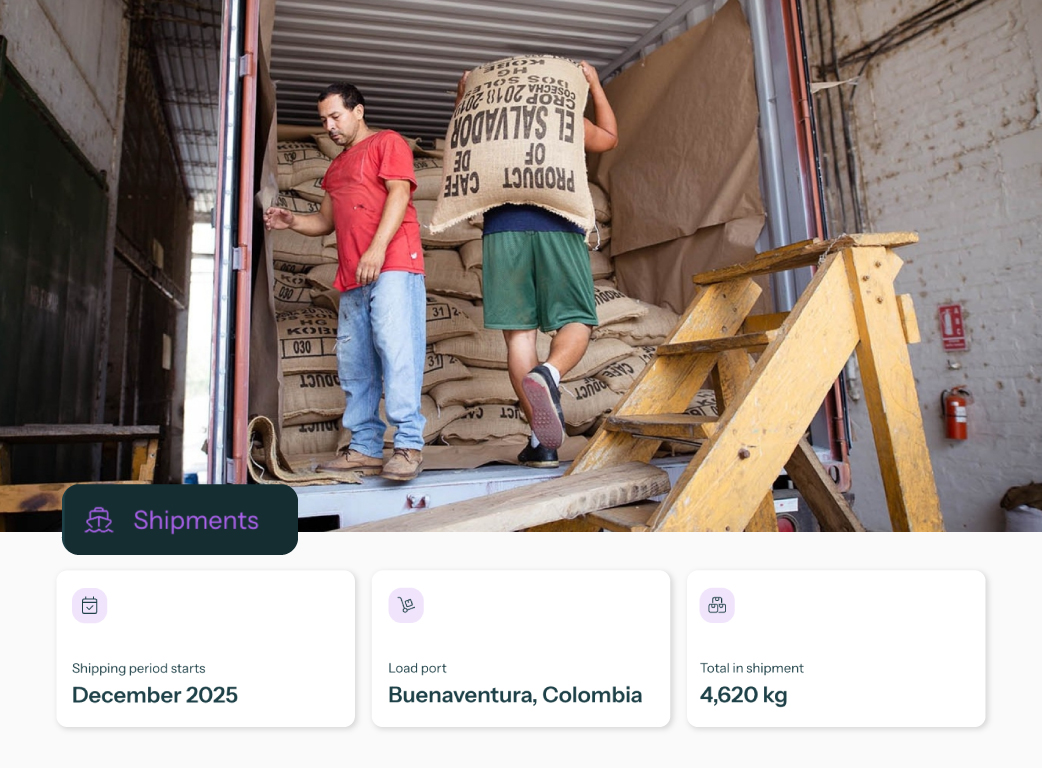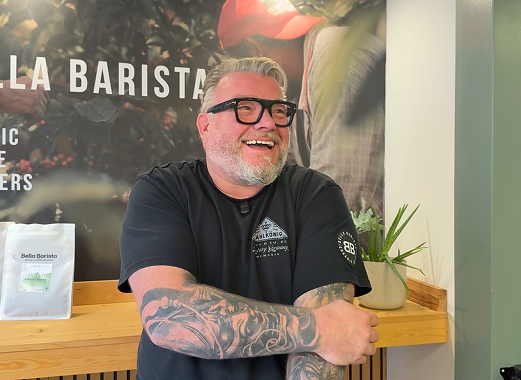
Blog: The Source
Seu acesso a tudo relacionado à compra e venda de café verde e aos mercados de café. Histórias reais, educação e atualizações do mercado para ajudar torradores e produtores a construir relações comerciais diretas e honestas.

Seu acesso a tudo relacionado à compra e venda de café verde e aos mercados de café. Histórias reais, educação e atualizações do mercado para ajudar torradores e produtores a construir relações comerciais diretas e honestas.
.png)
Algrano and the African Fine Coffees Association are joining forces. We are bringing a delegation of more than 20—including buyers from the US and Europe—to Ethiopia. Join our panel on "Why buying from Africa feels hard" and attend our Open Cupping.
.png)
The US coffee tariff is gone, but the specific 40% duty on Brazilian coffee hasn't dropped. Here is the breakdown of the conflicting orders and what you need to know before approving your next shipment.
Algrano and the African Fine Coffees Association are joining forces. We are bringing a delegation of more than 20—including buyers from the US and Europe—to Ethiopia. Join our panel on "Why buying from Africa feels hard" and attend our Open Cupping.
.png)

Acompanhe seus embarques de forma fácil em sua na sua conta da Algrano. Lá você vê os contratos que vão no contêiner, as datas de embarque, o porto de saída e os contatos do exportador responsável.

Nico Herr, da Mountain Harvest, compartilha sua experiência de vendas para torrefações junto a uma de suas clientes, Luci Ramirez da Humboldt Bay Coffee. As duas mostram, na prática, o que é preciso para fazer um pitch de café e começar relacionamentos duradouros.
%201%402x%20(4).png)
Aprenda como Vendedores Verificados devem configurar ofertas do jeito certo e facilite a compra para suas torrefações.
Join us in Zurich or Raleigh to celebrate two of our partners: Sancoffee and Clearpath. Get an exclusive look at their amazing auction lots before they are gone!
.png)

Discover how Marcel Binley of Bella Barista turned crippling cash flow and scary logistics into peace of mind, business certainty, and 30-40% anticipated growth through a partnership with Algrano.
%20(1).png)
This post brings the most impactful insights from our recent Roasters Panel on the 50% Brazilian Tariffs, offering strategic guidance on how to navigate the shift.

Discover the behind-the-scenes of coffee export and import, learn the lingo of contracts, nail quality protocols, and hear directly from producers about direct trade — all in our two-day workshop in Zurich.
Receba informações de líderes do setor, guias de fornecimento e atualizações de colheita enviadas diretamente para sua caixa de entrada.

Producers are getting more business and premiums, while new roasters are sourcing more coffee than ever with confidence. Learn about Algrano’s impact, pre-financing, data sharing with producers, and what's beyond relationship coffee.
%201.png)
.png)
Algrano and the African Fine Coffees Association are joining forces. We are bringing a delegation of more than 20—including buyers from the US and Europe—to Ethiopia. Join our panel on "Why buying from Africa feels hard" and attend our Open Cupping.
.png)
The US coffee tariff is gone, but the specific 40% duty on Brazilian coffee hasn't dropped. Here is the breakdown of the conflicting orders and what you need to know before approving your next shipment.

Acompanhe seus embarques de forma fácil em sua na sua conta da Algrano. Lá você vê os contratos que vão no contêiner, as datas de embarque, o porto de saída e os contatos do exportador responsável.
.png)
Join us in Zurich or Raleigh to celebrate two of our partners: Sancoffee and Clearpath. Get an exclusive look at their amazing auction lots before they are gone!

Discover how Marcel Binley of Bella Barista turned crippling cash flow and scary logistics into peace of mind, business certainty, and 30-40% anticipated growth through a partnership with Algrano.
%20(1).png)
This post brings the most impactful insights from our recent Roasters Panel on the 50% Brazilian Tariffs, offering strategic guidance on how to navigate the shift.

Nico Herr, da Mountain Harvest, compartilha sua experiência de vendas para torrefações junto a uma de suas clientes, Luci Ramirez da Humboldt Bay Coffee. As duas mostram, na prática, o que é preciso para fazer um pitch de café e começar relacionamentos duradouros.
%201%402x%20(4).png)
Aprenda como Vendedores Verificados devem configurar ofertas do jeito certo e facilite a compra para suas torrefações.

Discover the behind-the-scenes of coffee export and import, learn the lingo of contracts, nail quality protocols, and hear directly from producers about direct trade — all in our two-day workshop in Zurich.
%201%402x%20(2).png)
The coffee import landscape has shifted. We break down the new US tariffs and offer actionable strategies for roasters and producers to manage their sourcing, sales, and partnerships.
%201%402x%20(3).png)
Celebrating a decade of Algrano's journey at World of Coffee Geneva 2025. Here you can check the highlights the launch of new services to empower producers, the genuine connections forged at the booth, and the community spirit that continues to drive Algrano's mission of people-first coffee trade.